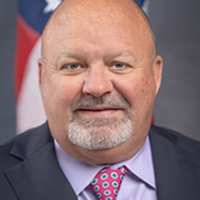Anthony W. Saveikis
Anthony W. Saveikis is an American judge currently serving on the Allegheny County Magisterial District Court in Pennsylvania. He first joined the court in 2006 and has since been re-elected multiple times, most recently in 2019.
Saveikis has built a reputation as an independent judge not afraid to make tough decisions. His bipartisan electoral success points to his popularity across the political spectrum. While his career has not been without some controversies, Saveikis remains focused on upholding the law and improving the court system.
Background and Early Life
Anthony Saveikis was born in Pittsburgh, Pennsylvania in 1963. His father worked in the steel industry, which was a major employer in western Pennsylvania at the time. Saveikis took an interest in the law from an early age.
Saveikis attended local public schools before graduating from the University of Pittsburgh in 1985 with a bachelor’s degree in political science. He remained in Pittsburgh for law school, graduating from Duquesne University School of Law in 1988.
Education and Early Career
Fresh out of law school, Saveikis took a position as an associate attorney with a Pittsburgh law firm. He handled mainly criminal defense and personal injury cases. This experience on both sides of the courtroom gave Saveikis insight into how the legal system works in practice.
Eager to work in the public sector, Saveikis successfully ran for election as a magisterial district judge in 1993. These local judges handle landlord-tenant disputes, traffic citations, and minor criminal cases. Saveikis spent over a decade in this role.
He earned praise for clearing backlogs and resolving cases quickly. Saveikis also spearheaded new community outreach programs aimed at resolving problems before they ended up in the courtroom.
Election as Judge
Running as Democrat and Republican
In 2005, a seat opened up on the Allegheny County Court of Common Pleas, which handles major civil and criminal cases in the county containing Pittsburgh. Saveikis decided to run for the open judgeship.
In an unusual move, Saveikis successfully sought the nomination of both the Democratic and Republican parties. This demonstrated his bipartisan appeal. Saveikis campaigned on his extensive legal experience and ability to evaluate cases impartially.
Election Results
The gambit paid off, with Saveikis cruising to victory in the November 2005 election. He received 64% of the vote districtwide. Saveikis became one of only a handful of judges to serve in all three levels of Pennsylvania’s court system.
Saveikis took office as a common pleas judge in January 2006. He was assigned to the family court division, dealing with sensitive issues like divorce, child custody, and domestic violence. He earned praise for his even-handed approach and treatment of all parties with respect.
Judicial Philosophy and Approach
As a judge, Saveikis believes strongly in upholding the Constitution and interpreting the law as written. He has spoken out against judicial activism, arguing judges must be impartial arbiters rather than seek specific political outcomes.
At the same time, Saveikis recognizes the real-world impacts court decisions have on people’s lives. He strives to ensure everyone receives fair, respectful treatment in his courtroom. Saveikis is not afraid to question attorneys closely or diverge from standard procedures if he feels it serves the interests of justice.
Saveikis encourages alternative dispute resolution methods like mediation when appropriate. But he takes firm action when individuals disregard orders or refuse to accept responsibility for criminal actions.
Above all, Saveikis emphasizes keeping an open mind and evaluating each case on its unique merits. He believes no single ideology or viewpoint should dominate judicial thinking.
Notable Rulings and Cases
Over his long judicial career, Saveikis has presided over thousands of cases and made many noteworthy rulings:
- In 2009, Saveikis ordered a Catholic charity to pay punitive damages for failing to report child abuse allegations against a priest. The decision held religious organizations to the same standards as other institutions.
- He received media attention for a 2012 decision finding a Pittsburgh man not guilty of harassment for posting rap lyrics critical of the police on his Facebook page. Saveikis ruled the lyrics were protected free speech.
- In 2015, Saveikis ruled that new Pittsburgh regulations on food trucks violated state laws on intrastate commerce. The decision paved the way for more food trucks to operate in the city.
- Saveikis has been viewed as tough but fair in divorce and custody cases. In 2018, he awarded joint custody to a same-sex couple over the objections of one partner’s family.
- In criminal matters, Saveikis has been willing to impose maximum sentences on repeat violent offenders. But he also supports rehabilitation and diversion programs for non-violent crimes.
While not everyone agreed with all his rulings, attorneys praised Saveikis for his deep knowledge of the law and commitment to impartial justice.
Re-Election Campaigns
2019 Re-Election
Pennsylvania judges serve 10-year terms before facing reelection. Saveikis was next up for reelection in 2019. He again sought the nomination of both political parties.
In the Democratic and Republican primaries, Saveikis captured over 98% of the vote against minimal opposition. He touted his bipartisan approach and record of fair, thoughtful decisions.
The general election was even more of a landslide, with Saveikis garnering over 99% of the districtwide vote. Such across-the-board support reflected Saveikis’ sterling reputation and the trust he inspired.
Saveikis viewed the victory as confirmation that his independent approach resonated with voters, regardless of political leanings. He began another 10-year term in January 2020, determined to maintain his high standards.
Personal Life
Judge Saveikis resides in Pittsburgh with his wife Julie, who works as a real estate agent. They have two adult children, Michael and Elizabeth.
In his limited free time, Saveikis enjoys playing golf and tennis. He also volunteers with the United Way and other charitable organizations. Friends describe Saveikis as witty with a good sense of humor.
Saveikis credits his parents for instilling the values of hard work, integrity, and concern for others. His goal is applying those values fairly and compassionately from the bench.
Legacy and Impact
With over 25 years of combined judicial experience, Saveikis has left a significant mark on western Pennsylvania’s legal landscape:
- He has mentored dozens of young attorneys and inspired some to pursue judgeships. Many lawyers view Saveikis as a role model.
- Saveikis has advocated for alternative dispute resolution and diversion programs to keep people out of jail for minor offenses. This push for criminal justice reform has gained increased support.
- His bipartisanship demonstrated that non-ideological, merit-based judging is possible and still appealing to voters. This counteracts growing political polarization.
- Saveikis treats everyone in his courtroom respectfully, regardless of background, increasing public trust.
- His decisions have shaped case law on important topics like free speech, intrastate commerce, and organizational accountability.
- Overall, Saveikis has shown one judge can make a big difference through wisdom, integrity, and commitment to equal justice under the law.
Criticism and Controversies
Saveikis’ outspoken nature and unconventional moves have also sparked some controversies:
- In 2013, the Pennsylvania Judicial Conduct Board issued Saveikis a public reprimand for improperly discussing details of cases at public events. He acknowledged the lapse in discretion.
- Some felt Saveikis overreached in a 2014 decision overturning a Pittsburgh law limiting gun possession in public parks. Critics argued he should have let the appeal process determine constitutionality.
- The Catholic Church took issue with Saveikis’ tough stances against priests implicated in abuse cases. They believed he singled out Catholic institutions unfairly.
- A few decisions gave lighter sentences to first-time wealthy offenders, sparking accusations of pro-defendant bias from victims’ rights groups.
- Saveikis’ informal courtroom manner irked a few traditionalists, though most appreciated his candor and wit.
Despite these flareups, Saveikis’ broad support reflected public trust in his principles and legal acumen. The controversies proved minor compared to his positive impact.
Comparison to Other Judges
Saveikis’ unique personality and approach stand out among both local and national judges:
- Unlike the reserved formality of most judges, Saveikis interacts conversationally and bluntly with attorneys and litigants, cutting through obfuscation.
- He discard rigid “tough on crime” attitudes in favor of contextualized rehabilitation where appropriate.
- Saveikis weighs real-world implications without getting swayed by political calculations or ideological biases.
- His decisions tend to be nuanced rather than dogmatic. He defies easy right/left labelling.
- Similar to outspoken Federal Judges like Andrew Napolitano or Alex Kozinski, Saveikis is not afraid to questionestablished orthodoxies and hierarchies.
Yet his maverick streak stops short of judicial activism. Saveikis respects separation of powers and interprets laws rather than seeking specific outcomes based on personal preferences. In this regard he echoes the philosophy of Antonin Scalia.
Few judges match Saveikis’ independent spirit, broad support, and pragmatic approach. He resists established categories and forges his own path.
Future Outlook
Having just been re-elected in 2019, Saveikis is positioned to remain an influential force in Allegheny County’s judicial system for years to come. What might the future hold as his unique career continues?
- Saveikis will likely issue high-profile rulings touching on civil rights, corporate issues, and constitutional disputes. His impartial approach could gain more national prominence.
- He may speak out on perceived abuses of power or corruption within the justice system. Saveikis does not shy away from tackling controversial topics.
- There is talk of Saveikis being elevated to a federal judgeship or Pennsylvania Supreme Court appointment. His bipartisan credentials could aid such a move.
- Some see him seeking other elected offices, but Saveikis appears content where he is for now.
- Advocacy groups will continue pushing for Saveikis to embrace criminal justice reforms, like elimination of cash bail for minor charges. This will test his centrist principles.
- No matter the issue or pressures, Saveikis will follow his conscience. He prioritizes integrity over ideology or pleasing special interests.
One thing is certain – Saveikis will continue making his mark by upholding justice and calling out inequities when he sees them. That willingness to speak truth to power has defined his career.
Conclusion
Summary and Importance
Judge Anthony Saveikis’ lengthy tenure demonstrates that nonpartisan, merit-focused judging can still succeed and earn public confidence. Saveikis applies the law even-handedly based on principles of fairness, compassion, and constitutional fidelity.
Rather than molding verdicts to a rigid ideology, Saveikis weighs each case on its own merits and what best serves justice. This pragmatism allows him to utilize discretion and common sense without judicial overreach.
While critics exist on both sides, Saveikis maintains his integrity. His innovative programs and landmark rulings made tangible improvements to people’s lives while shaping Pennsylvania’s legal landscape.
Most importantly, Judge Saveikis never forgets the real human impacts of his courtroom. He treats all individuals with dignity and respect, regardless of background. In an era of polarization, Saveikis’ moderation and principled independence offers a path forward that more public servants should emulate.
FAQ
Q: What is Saveikis’ political affiliation?
A: Saveikis is a registered Democrat but has won nominations and elections as both a Democrat and Republican. He is considered an independent centrist.
Q: What court does Judge Saveikis currently serve on?
A: Saveikis serves on the Allegheny County Court of Common Pleas in western Pennsylvania. This is the county-level trial court that hears major civil and criminal cases.
Q: What notable rulings has Saveikis made?
A: High-profile Saveikis rulings include upholding free speech rights in a Facebook rap lyrics case, limiting Pittsburgh food truck regulations, and ordering a Catholic diocese to pay damages for child abuse coverups.
Q: Has Judge Saveikis faced ethics complaints?
A: Saveikis received a public reprimand in 2013 from the Judicial Conduct Board for improperly discussing case details at public events. But he has not faced serious charges of ethical misconduct.
Q: How long can Saveikis serve as judge?
A: Like all Pennsylvania common pleas judges, Saveikis serves 10 year terms before facing reelection. He will be up for reelection again in 2029 after just winning a new term in 2019.






